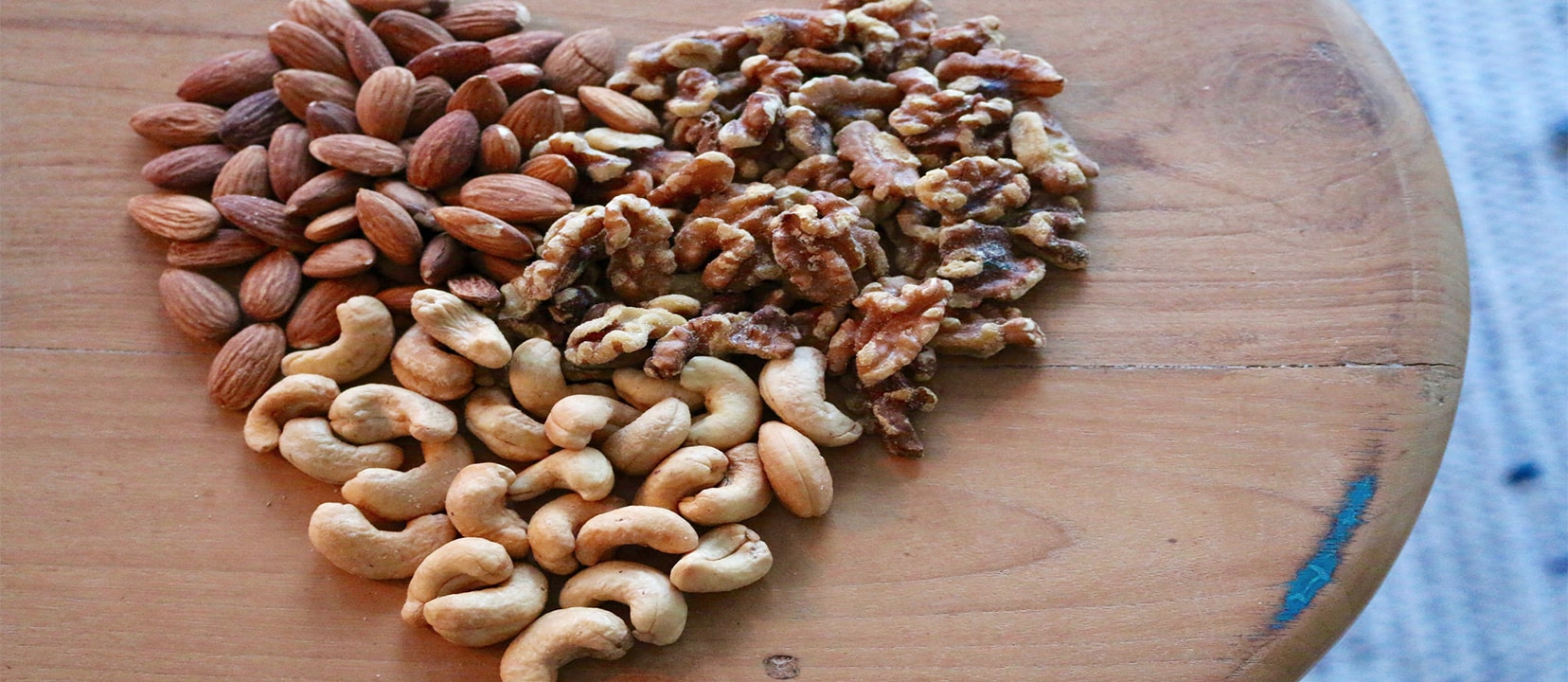In the PREDIMED study, from the Spanish “PREvencio ́n con DIeta MEDiterranea,” a whopping 7,447 patients were randomized into three groups. These were folks at high risk for a heart attack. About half were obese and diabetic and most had high blood pressure and high cholesterol, but they had not yet had their first heart attack or stroke. A third were told to eat a Mediterranean diet and given a free quart of extra virgin olive oil every week. The second group were told to eat a Mediterranean diet and given a free half pound of nuts every week, and the last third were told to follow the American Heart Association guidelines and reduce their fat intake. No portion control or exercise advice was given, and they were followed for about five years. The results were published in the New England Journal of Medicine.
The first thing you do when you look at a diet intervention trial is see what the groups actually ended up eating, which can be very different from what they were told to eat. For example, the so-called low-fat group started out at 39 percent of calories from fat, and ended up getting 37 percent of calories from fat, which is high fat even compared to the Standard American Diet which comes in at 33 percent, something the researchers plainly acknowledged. In fact, the control group didn’t change much at all over the years, so can be thought of as the what-if-you-don’t-do-anything group, which is still an important control group to have. However, the two Mediterranean diet groups didn’t get much more Mediterranean. You can see the charts in my video PREDIMED: Does Eating Nuts Prevent Strokes?
The two Mediterranean groups were told to eat more fruits and vegetables, for example, and less meat and dairy, but didn’t accomplish any of those compared to control. The biggest changes recorded were, not surprisingly, in the consumption of the freebies. The group that got a free jug of extra virgin olive oil delivered to their home every week really did start increasing their consumption, in part by replacing some of the refined olive oil they had been using. And those that got a half pound of free nuts sent to them every week for four years straight did start eating more nuts.
Basically, the researchers designed a study to test two different Mediterranean diets versus a low fat diet, but ended up studying something very different. In essence, they studied what happens when thousands of people switch from consuming about three tablespoons of olive oil a day (half virgin) to four tablespoons of all virgin, compared to thousands of people who all the sudden go from eating about a half an ounce of nuts a day to a whole ounce, compared to thousands of people who don’t make much of a change at all. It may not have been what they were hoping for, but these are important research questions in and of themselves.
With no significant differences in meat and dairy intake, there were no significant differences in saturated fat or cholesterol intake; so, no surprise there were no significant differences in their blood cholesterol levels; and so, no differences in their subsequent number of heart attacks. In the five or so years the study ran, there were 37 heart attacks in the olive oil group, 31 in the nut group and 38 in the neither group. No significant difference. Same with dying from a heart attack or stroke or from any cause—but, those in the olive oil and especially the nut group had significantly fewer strokes. All three groups were eating stroke-promoting diets; some people in all three groups had strokes after eating these diets for years; and so ideally, we’d choose diets that can stop or reverse the disease process, but the diet with added extra virgin olive oil caused about a third fewer strokes, and adding nuts seemed to cut their stroke risk nearly in half. If this worked as well in the general population, in the U.S. alone, that would mean preventing 89,000 strokes a year. That’s would be like ten strokes an hour around the clock prevented simply by adding half an ounce of nuts to one’s daily diet.
Here are some of my previous videos on the Mediterranean diet:
- Why Was Heart Disease Rare in the Mediterranean?
- The Mediterranean Diet or a Whole Food Plant-Based Diet?
- Do Flexitarians Live Longer?
- Improving on the Mediterranean Diet
- Mediterranean Diet & Atherosclerosis
- Which Parts of the Mediterranean Diet Extended Life?
The PREDIMED study got a bad rap because of how it was reported, but it’s an extraordinary trial that continues to churn out useful results.
More on nuts in:
- Pistachio Nuts for Erectile Dysfunction
- Nuts May Help Prevent Death
- Walnuts and Artery Function
- Which Nut Fights Cancer?
- Four Nuts Once a Month
- Almonds for Osteoporosis
But what about nuts and weight gain? See Nuts and Obesity: The Weight of Evidence .
For videos on olive oil, see Extra Virgin Olive Oil vs. Nuts and Olive Oil & Artery Function.
In health,
Michael Greger, M.D.
PS: If you haven’t yet, you can subscribe to my free videos here and watch my live, year-in-review presentations:
- 2012: Uprooting the Leading Causes of Death
- 2013: More Than an Apple a Day
- 2014: From Table to Able: Combating Disabling Diseases with Food
- 2015: Food as Medicine: Preventing and Treating the Most Dreaded Diseases with Diet
- 2016: How Not To Die: The Role of Diet in Preventing, Arresting, and Reversing Our Top 15 Killers
